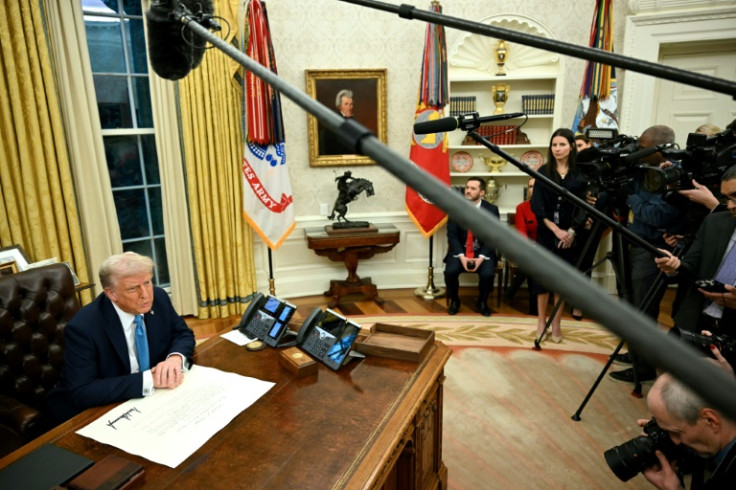US Tariff War: President Trump Admits Tariff Chaos Will Impact American Consumers

Donald Trump announced that starting Saturday, he would impose 25 percent tariffs on imports from Canada and Mexico, along with 10 percent tariffs on goods from China, which could lead to quick price hikes for American consumers.
However, the president hinted that he might soften the impact on oil imports by applying a lower tariff rate.
Speaking to reporters in the Oval Office, Trump admitted that the tariffs could cause short-term disruption, noting that some of the costs would be passed on to consumers. Despite this, he expressed that he was not concerned about how the market would react to the move. Trump also stated that there was nothing the three countries could do to prevent the tariffs from taking effect on Saturday. "No, we're not looking for a concession. We'll just see what happens," he remarked.
He also indicated that he planned to assess tariffs on the European Union and consider sector-specific levies on oil, gas, steel, aluminum, copper, pharmaceuticals, and semiconductors.
"In one case," Trump said, seemingly referring to China, "they're sending massive amounts of fentanyl, killing hundreds of thousands of people a year with it."
"And in the other two cases," he continued, seemingly referring to Canada and Mexico, "they're making it possible for this poison to get in."
Trump has alternated in explaining his reasoning for imposing tariffs on Canada. Initially, he suggested that the tariffs were necessary to push the Canadian government to improve border security, but he has also expressed concerns about trade deficits.
Canadian Prime Minister Justin Trudeau stated that the country is "ready with a forceful and immediate response" if the U.S. proceeds with its threatened tariffs tomorrow.
"I met with our Canada-U.S. Council today. We're working hard to prevent these tariffs, but if the United States moves ahead, Canada's ready with a forceful and immediate response," Trudeau wrote on X.
No one — on either side of the border — wants to see American tariffs on Canadian goods.
— Justin Trudeau (@JustinTrudeau) January 31, 2025
I met with our Canada-U.S. Council today. We’re working hard to prevent these tariffs, but if the United States moves ahead, Canada’s ready with a forceful and immediate response.
U.S. government data shows that the trade in goods deficit with Canada stood at $55 billion US as of November 2024. However, Canadian officials argue that when oil exports are excluded, the U.S. actually has a trade surplus with Canada. The data also does not account for American services consumed by Canadians, including those from the entertainment industry.
Illegal migration through Canada into the U.S. has been on the rise in recent years. U.S. Customs and Border Protection officers recorded nearly 200,000 encounters at the northern border between October 2023 and September 2024, according to data from the agency. This surge in encounters highlights the growing challenge of managing migration along the northern border, as more individuals attempt to cross into the U.S. from Canada.
Meanwhile, the U.S. has become the primary source of illegal firearms entering Canada. This flow of weapons has raised concerns about the impact on public safety and the efforts required to curb smuggling across the border.
© Copyright IBTimes 2024. All rights reserved.





















